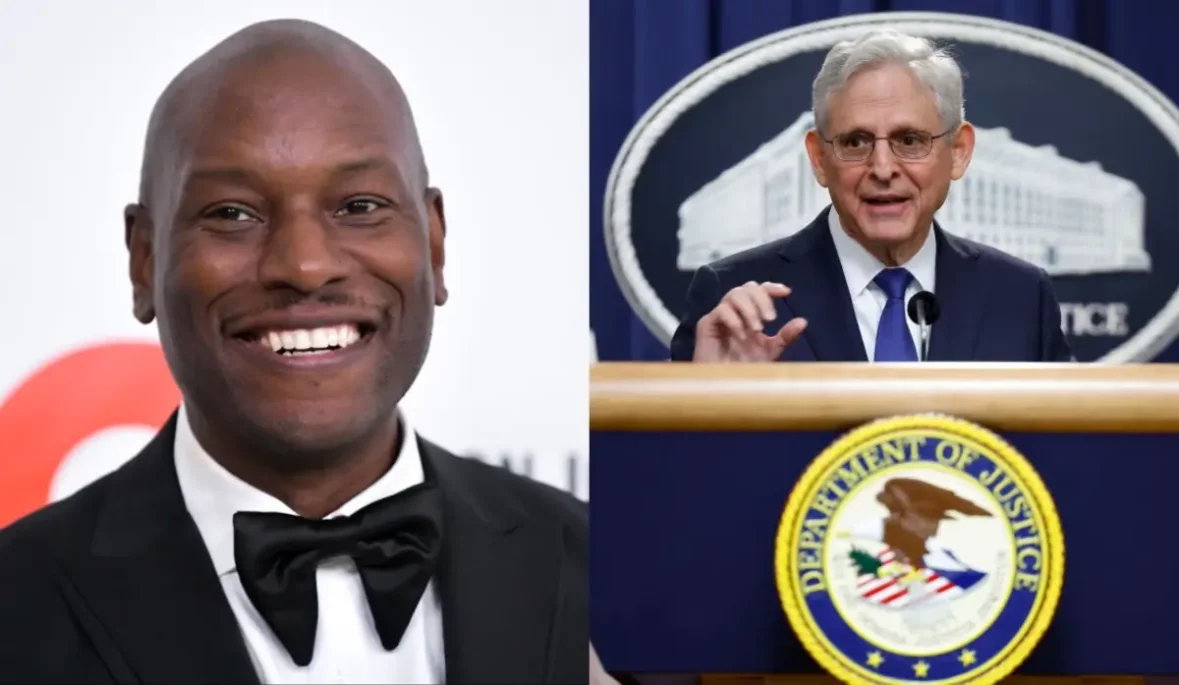Actor and singer Tyrese Gibson caused a fast and furious uproar on social media this week when, during an interview with civil rights attorney Ben Crump posted on X, he complained that President Joe Biden and Vice President Kamala Harris “signed an Asian hate crime bill” during the Covid-19 pandemic that “protects Asians at all costs” while claiming they’ve done little to protect Black and brown people from hate crimes.
“What you’re doing is, President Biden and Kamala Harris, you’re saying that Black and brown people will continue to be disposable,” Gibson said, while Crump seemed to nod approvingly.
Millions of people have responded online to the outspoken entertainer’s assertions, some to echo his concerns and anger and others to call him out for getting his facts wrong.

“It’s important that we respect Tyrese and his right to speak, but it’s also important that we hold Tyrese accountable for the rant he just went on, which makes no sense and simply is filled with factual inaccuracies,” said Marc Lamont Hill, professor of urban education at City University of New York Graduate Center.
“He says that Joe Biden and Kamala Harris signed an Asian hate crime bill and ignores Blacks and Latinos. It’s just not true,” Hill continued. “There’s already hate crime legislation on the books … that go back to the ’60s. Obama also passed one, the Matthew Shepard and James Byrd, Jr. Hate Crimes Prevention Act [in 2009].
“Then President Biden, the very person he said didn’t do something, signed the Emmett Till Anti- Lynching bill into law in 2022. That’s following more than a 100 years and 200 failed attempts by lawmakers, finally making it a federal hate crime. So, to be clear, you can say that we haven’t done a good job of protecting Black folk from state violence and white supremacist violence … but what you can’t say is that there is this Asian hate crime bill and nothing for Black folk. That is simply untrue.”
Political commentator Keith Boykin, who leads the National Black Justice Coalition board, summed it up this way:
During a live call-in show on C-SPAN, Sirius XM host and Democratic political strategist Reecie Colbert pointed out, “There’s no such thing as the Asian Hate Crime Bill. There’s the Covid-19 Anti-Hate Crime Bill, which simply added a [Department of Justice] expediter to review cases that are COVID-related.” She then posted a list of federal hate crime protections for Black people.
Others pointed out that bills are signed into law or vetoed by the president, not the vice president.
Colbert responded to a Black Republican male caller’s criticism of Harris’ record of supporting Black people by noting that “Harris has always been focused on racial equity in her agenda,” while Trump has not. She noted that Harris led a task force to eliminate homeowner appraisal bias as a U.S. Senator, helped secure additional funding for HBCUs, “and has elevated the issue of Black maternal mortality to the White House level.”
“Black people already have hate crimes legislation,” Colbert said. “We wouldn’t know Black people are the number one victims of hate crimes if we didn’t have federal hate crimes legislation. So that’s a battle that has already been won and does not need to be relitigated and fought again.”
According to the hate crimes statistics reported by law enforcement agencies to the FBI, race, ethnicity, or ancestry was a motivating factor in 59 percent of cases involving victims of single-bias incidents reported in 2022. The majority of those cases involved anti-Black or -African American bias.
Overall, violent crime went down 1.7 percent in the U.S. in 2022, but hate crimes rose to 11,288 incidents in 2022 from 10,840 incidents the previous year, a whopping 25 percent increase.
The Southern Poverty Law Center (SPLC) noted that the 2022 FBI Hates Crimes report also documented:
- The highest number of reported race-based crimes ever (6,570), including the highest number of crimes directed against Black people (3,424) since 2000.
- The highest number of “anti-Hispanic or Latino” crimes (738).
- The second-highest number of anti-Asian American and Pacific Islander crimes (525).
- The highest number of crimes targeting people and institutions because of their sexual orientation (1,947), gender identity (469) and religion (2,014). This includes the highest number of antisemitic crimes since 1993 (1,124) and a growing number of anti-Muslim crimes (158).
What many civil and human rights advocates find alarming is that the hate crimes data the U.S. Department of Justice relies on for these statistics is woefully incomplete.
While the FBI has been collecting hate crime data from the nation’s 18,000 federal, state, local and tribal law enforcement agencies under the Hate Crime Statistics Act (HCSA) since 1991, hate crime data collection – like all FBI crime reporting – is voluntary, the SPLC noted.
“Moreover, in a year of record-breaking hate crime reports, thousands of police agencies across the country did not report any hate crime data to the FBI – and almost 80 percent of the rest reported to the FBI that they had zero hate crimes. That’s a stunning statistic, especially when you consider it includes about 60 police departments that serve cities with more than 100,000 people,” including New York City, Miami, Chicago and Los Angeles, the center reported.
And while 48 states have now passed legislation that adds enhanced penalties to crimes involving bias related to race, ethnicity or ancestry — only South Carolina and Wyoming remain holdouts on passing state hate crimes laws — many victims are hesitant to take advantage of such laws.
According to the Leadership Conference on Civil and Human Rights, research shows that 66 percent of hate crime victimizations go unreported to law enforcement.
Noting the “reporting gap” between the number of actual hate crimes committed, the number reported to local law enforcement, and the number ultimately reported to the FBI, the NAACP has been calling for federal legislation “to incentivize and encourage jurisdictions to accurately and uniformly report hate crimes to the FBI” since 2019.
That gap “is a problem in that it suggests we don’t know the actual frequency of hate crimes, or whether current efforts to stop them are effective, and … the failure to count or address hate crimes erodes the trust and relationship between communities of color and law enforcement agencies,” said the NAACP.
In 2021, the FBI adopted a new crime reporting system, the National Incident-Based Reporting System, that is more comprehensive in what it asks law enforcement agencies to report about hate crimes. The FBI is giving law enforcement agencies five years to ramp up and adopt the system, so far with lackluster results in the hate crimes category.
The Improving Reporting to Prevent Hate Act (HR 7648) would change that by tying federal funding to state and local law enforcement on credible hate crime reporting to the FBI. The agencies can also get support for meaningful hate crime prevention, outreach and awareness initiatives. The bill, sponsored by Virginia Democratic Rep. Don Beyer and Nebraska Republican Rep. Don Bacon, was referred to the House Judiciary Committee in March.
“Hate crime reporting demands reform,” the Leadership Conference on Civil and Human Rights insisted. “The current system is broken. … These reforms [proposed in the bill] will enable policymakers and community advocates to better track and combat hate crimes.”


